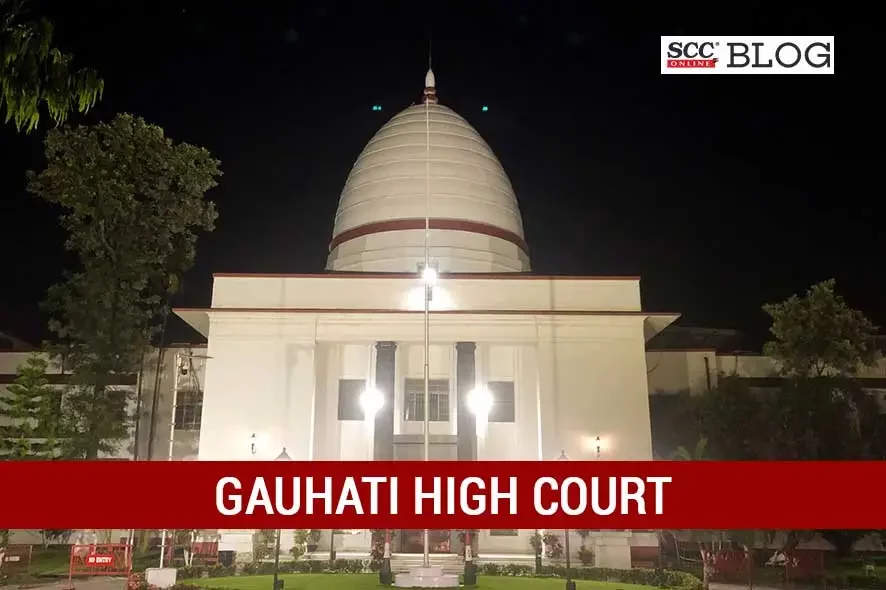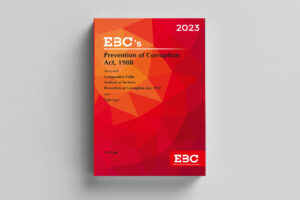Gauhati High Court: While considering the question that whether the term “conclusion of a proceeding and final order passed” used in Rule 22(1) of the Assam Services (Pension) Rules, 1969, in respect of a criminal proceeding, shall mean conclusion of a proceeding when a person is convicted, or whether such finality and conclusion of proceeding shall attain finality after determination of the appeal as provided under Section 393 of CrPC; the Bench of Arun Dev Choudhury, J.*, held that in respect of Rule 22(1) of the Assam Pension Rules, 1969, the criminal appeal filed by the deceased petitioner in the instant matter is a judicial proceeding. It was further held the judicial proceeding initiated against the deceased husband during his service period shall attain finality on the termination/determination of the criminal appeal. Therefore, till such determination/termination of judicial proceeding, the pensioner/deceased husband of the petitioner, shall be entitled for provisional pension till his death.
Background and Legal Trajectory: The husband of the present petitioner, who was a Government servant and serving at Dhemaji Zilla Parishad, was arrested under Sections 468/471/409 of the Penal Code, 1860 and under Section 7 of the Prevention of Corruption Act, 1988 in 2011 for committing financial irregularities to the tune of Rs 1.88 crores of public fund. Subsequently the Commissioner, Panchayat & Rural Development Department by an order placed the petitioner under suspension w.e.f. the date of arrest. The petitioner was placed under suspension and a departmental proceeding was also initiated.
The respondent authorities without completing disciplinary proceeding, kept him under suspension for more than 13 months and also did not release the arrears of salary, subsistence allowance which compelled the petitioner had to file a writ petition. This writ was disposed of directing the respondent authorities to take a considered decision with regard to revocation of suspension, payment of subsistence allowance for the period of suspension and release of arrears of salary as claimed by the petitioner within a period of six weeks.
Pursuant to the afore-stated order, the respondent authority re-instated the petitioner in service. However, a departmental proceeding was initiated by issuing show cause notice and a day prior to the retirement of the petitioner on 29-11-2017, he was removed from service as punishment.
The afore-stated decision was again challenged by filing a writ petition before the High Court which was disposed of by setting aside the order of removal and with a liberty to the employer to start de-novo proceeding. Alleging to non-compliance of this order the petitioner then filed a contempt petition, which was disposed of by issuing a direction to the respondent to do the needful to ensure that the provisional pension is paid to the petitioner. The Court had concluded that under Rule 22(1) of the 1969 Rules, the petitioner cannot be deprived of provisional pension.
While the contempt proceeding was pending, the petitioner was convicted in the criminal proceeding. Furthermore, the respondents in 2020 granted provisional pension to the petitioner with effect from 01-12-2017 till the date of his conviction.
The petitioner then challenged his conviction via an appeal and also filed the instant writ petition with a prayer that he is entitled for family pension under Rule 22 of the 1969 Rules, till the determination of judicial proceeding which was first initiated through lodging of FIR in 2011.
While both the appeal and writ petition were pending, the petitioner died in 2021 and wife got impleaded in both the Criminal Appeal as well as in the instant writ petition.
Court’s Assessment: Perusing the trajectory of the case, the Court also had to consider that whether under Rule 21 of the 1969 Rules, the Governor is empowered to withhold the provisional pension permanently or for a specified period or a regular pension which has already been granted.
Perusing Rule 20 and Rule 21 of 1969 Rules, the Court noted that, “when a pensioner is found guilty of grave misconduct or negligence during the period of his service and in the meantime, he has retired and already getting pension, the Governor of Assam can withhold or withdraw the pension in whole or in part thereof either permanently, or for a specific period. The Governor is further empowered to make recovery”.
The Court pointed out that in the instant case, the criminal proceeding was initiated within the meaning of Rule 21 of the 1969 Rules while the husband of the petitioner was in service. A departmental proceeding was also initiated within the meaning of Rule 21 of the 1969 Rules during his service period, though the petitioner was removed from service, such decision was set aside with a liberty given to the employer to continue with de-novo proceeding, which was not started. Therefore, the Court focused only on the judicial proceeding in the instant matter and not the departmental proceeding.
The Court opined that pension being a very valuable right, the legislature in its wisdom, had incorporated Rule 22 of the 1969 Rules, so that a pensioner survives till the allegations attain finality.
It was further held the judicial proceeding initiated against the deceased husband in respect to Rule 22(1) of the 1969 Rules shall attain finality only the termination/determination of the criminal appeal. Till such finality, the pensioner/deceased husband shall be entitled for provisional pension till his death; that is to say that, the deceased pensioner’s wife shall be entitled for provisional family pension till determination of the criminal appeal.
Based on the afore-stated assessment, the Court thus allowed the instant petition.
[On the death of Anil Mahanta v. State of Assam, 2023 SCC OnLine Gau 3660, decided on 10-10-2023]
*Judgment/Order by Justice Arun Dev Choudhury
Advocates who appeared in this case :
Petitioner- D. Borgohain. Advocate
Respondents- K. Konwar, Additional Advocate General, Assam assisted by P. Handique, Advocate; S. K. Medhi, Standing Counsel, Accountant General (A&E), Assam; A. Chaliha, Standing Counsel, Finance Department, Assam.








